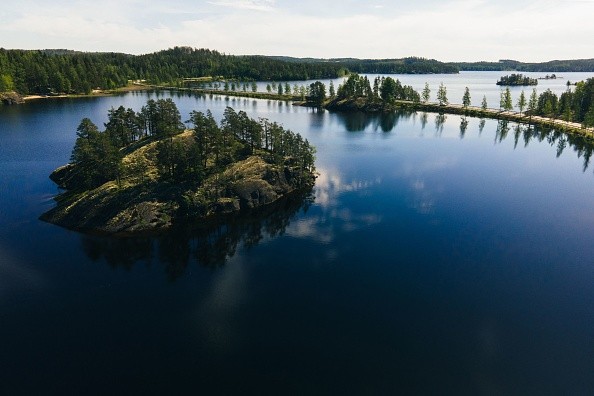Researchers discovered that nearly half of the world's significant lakes have suffered from declining resilience due to human disturbance and climate change, warning of possible environmental impacts.
Lakes are unique habitats for many species and provide livelihoods to communities. While these lakes hold environmental and economic importance, they have suffered from various human-caused threats.
Reports noted that the following pressing concerns threaten lakes:
- Plastic pollution
- Climate change
- Habitat loss
- Invasive species
- Illegal fishing practices
Protecting these areas with the lakes' importance is crucial for conservation and protection, preventing potential widespread biodiversity loss.
Large Lakes Are Under Threat

An American Geophysical Union report on June 26 found that nearly half of the world's large lakes have shown declining resilience. This means that these lakes will find it challenging to adapt to or bounce back from potential human disturbances. Understanding this new report offers new insights into policymakers and environmentalists to conduct more protection efforts to safeguard the unique biodiversities living in many lakes.
The research findings were published in Geophysical Research Letters.
The lakes in eastern North America and northern Europe are home to different species. However, a recent report raised concerns about the impacts of pollution on the lakes. Another alarming concern is climate change-driven warmer temperatures. Changing temperatures have been blamed for significantly affecting marine species, including coral reefs. In the report, the researchers highlighted that the warming event, exacerbated by decreased precipitation and widespread pollution, can shift lakes' natural states.
The research findings also provide new insights into lake resilience in future scenarios, especially when human-induced changes have been alarming. To better monitor this, the report analyzed at least 1,049 of the world's largest lakes from 2000 to 2018. From 2010 to 2018, the researchers discovered that 38% of lakes suffered from lost resilience. In addition to climate change, population density is a factor in the decline.
However, the researcher found that there are still resilient lakes located at higher elevations and bigger lakes. For instance, the lakes found in the Tibetan Plateau are clearer and larger, particularly due to glacial melting.
Coral Resilience in Lakes
Warming temperatures have affected coral reefs. While some have managed to adapt, corals are still experiencing ocean bleaching. In a recent Nature World News (NWN) report, researchers discovered that marine lakes in Raja Ampat in Indonesia showed remarkable coral resilience.
Researchers explained that the corals in the region have adapted to extreme heat. The findings can help future studies analyze the potential of coral species to thrive in harsh or extreme conditions.
The report observed over 37 species of hard corals in the said areas, particularly focusing on their thermal tolerance.
For more similar stories, don't forget to follow Nature World News.
© 2025 NatureWorldNews.com All rights reserved. Do not reproduce without permission.





